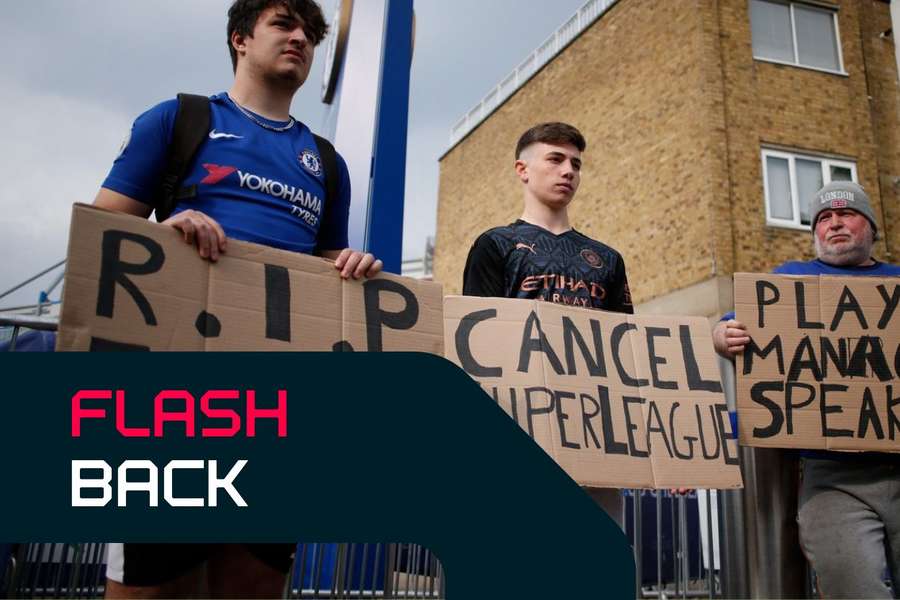The concept
The most influential figures behind the European Super League project were the aforementioned Perez, who was (to be) the chairman of the entire new organization, and four who would be his vice-chairmen: Andrea Agnelli (chairman of Juventus) and three Americans – Joel Glazer (co-chairman of Manchester United), John W. Henry (owner of Liverpool), and Stan Kroenke (owner of Arsenal).
The competition format was designed with inspiration from the European basketball’s EuroLeague. The European Super League would feature 20 football clubs that would take part in matches against each other.
Fifteen of these clubs would be 'permanent members' and called 'founding clubs'. The founding clubs would govern the competition’s operation, while five places would be given to clubs through a qualifying mechanism focused on the teams that performed best in the recent season of their country’s domestic league.
Each season, the European Super League teams would split into two groups of 10 clubs, playing home-and-away games in a double round-robin format for 18 group games per team, with fixtures set to take place midweek to avoid colliding with the clubs’ domestic leagues.
After this group stage, the top three of each group would qualify for the quarter-finals, while the teams finishing fourth and fifth from each group would compete in two-legged playoffs to decide the last two quarter-finalists.
The final part of the competition would take place in a four-week span at the end of the season, with the quarter-finals and semi-finals featuring two-legged ties, while the final would be a single fixture at a neutral venue.
Exclusive company
During the announcement of the establishment of the European Super League, Perez argued that the new competition would "provide higher-quality matches and additional financial resources for the overall football pyramid", and that it would bring "significantly greater economic growth and support for European football via a long-term commitment to uncapped solidarity payments, which will grow in line with league revenues".
Perez’s other points were that the European Super League would appeal to a new younger generation of football fans and would improve VAR and refereeing.
At the time of the announcement, in April 2021, 10 of the founding clubs were in the top 14 of the UEFA club coefficient rankings, with only Inter (26th) and AC Milan (53rd) falling outside. All 12 clubs were in the top 16 on the 2021 Forbes list of the most valuable football clubs.
The 12 founding member clubs were to be joined by Bayern Munich, Borussia Dortmund and Paris Saint-Germain in the aforementioned core of 15 clubs, but all three rejected involvement in the competition, publicly condemning the concept. Perez alleged that the three clubs had not been invited.
Total rejection
Many other French, German, Portuguese, Italian, and Dutch clubs also joined the rejectionist stance of Bayern, Borussia and PSG.
For example, Everton criticised the 'big six' English clubs joining the European Super League, accusing them of "betraying" football supporters.
Another traditional English side, Leeds United, before a Premier League game against Liverpool and just a day after the European Super League announcement, reacted with players warming up in t-shirts featuring the UEFA Champions League logo alongside the caption "earn it" on the front, and "football is for the fans" on the back.
In Serie A, Atalanta, Cagliari, and Hellas Verona reportedly called for the Italian teams who were part of the Super League to be banned from the domestic league.
Similar reactions and protests also came from many other sides as fans showed a huge wave of discontent. Protests were held in many places against the European Super League and directly against the involved clubs and their representatives.
Reactions from politicians and football personalities
The establishment of the European Super League was also condemned (among others) by French President Emmanuel Macron and British Prime Minister Boris Johnson, who also announced that he could not rule out the introduction of laws that would prohibit clubs from joining the European Super League.
Former Manchester United player and now influential TV pundit Gary Neville also represented a prominent critical voice.
He stated that the establishment of such a league was "an act of pure greed". He was particularly disappointed by the entry of his former club to the new initiative, claiming that strict measures must be taken against the founding clubs, including bans from European competitions (organised by UEFA) and points deductions in their domestic leagues.
Quick end
The pressure against the creation of the European Super League was enormous and numerous, as the entire ambitious project ended quickly.
Within just a few days, many of the involved clubs began pulling out, and the whole idea was scrapped. At least for now.

